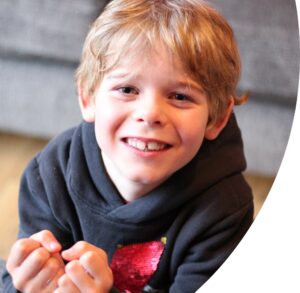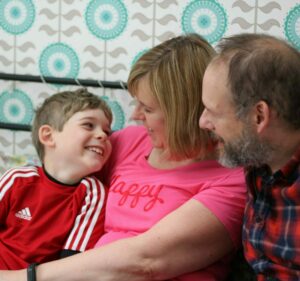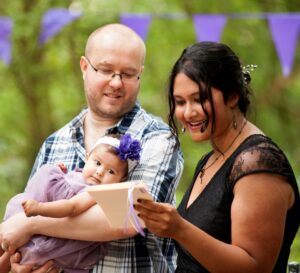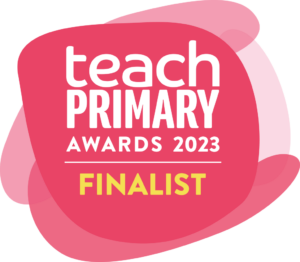 Here you’ll find resources to support children in nursery and reception (age 3-5) to encounter and explore the humanist approach to life at an age appropriate level.
Here you’ll find resources to support children in nursery and reception (age 3-5) to encounter and explore the humanist approach to life at an age appropriate level.
Humanism is a non-religious worldview shared by millions of people in the UK and around the world. Humanists believe we should use science and evidence to understand the world around us. They believe this is the one life we have and so we should seek happiness in the here and now and support others to do the same. They try to treat others with kindness and respect, and take care of other animals and the planet. To find out more about humanism click here.
 We teamed up with Gill Vaisey, Religion and Worldviews Adviser, Books at Press to bring you a series of resources about Wilf, a real child, and his family who live in South Wales. Wilf’s parents are humanist and he describes their beliefs alongside his own.
We teamed up with Gill Vaisey, Religion and Worldviews Adviser, Books at Press to bring you a series of resources about Wilf, a real child, and his family who live in South Wales. Wilf’s parents are humanist and he describes their beliefs alongside his own.
The best place to start is with the teachers’ guide, which provides background information relating to each resource and its theme, and offers suggestions for questioning and follow-up activities with pupils. The resources include an interactive digital tool, several slide show presentations, and additional activities. All can be accessed or downloaded by clicking on the links below.
A book about Wilf and his family (part of the Belonging and Believing series) can also be purchased from Books at Press.
“To begin with I felt a bit daunted as I knew nothing about this worldview, but after playing with the resource and book at home, I felt a lot more confident. After meeting Wilf, a real boy and his family, the children in my reception cohort were completely engaged and eager for more.“
Charlotte Skinner, teacher, Undy Primary School
When using these resources, it’s important to note that:
1) Many humanists don’t believe in labelling children with a particular religion or worldview. Wilf’s parents are humanists, but they believe Wilf should be free to decide for himself what he believes and how he identifies himself.
2) These resources highlight how Wilf’s parents express their humanist beliefs, but they do not represent all humanists. Many humanists will share the beliefs and values expressed in these resources. However, it is important for children to understand that diversity exists.


Resources
1. Kindness – helping others to have a happy life (interactive digital tool)
2. One life – being happy (presentation)
3. Family (presentation)
4. Humanist naming ceremonies (presentation)
5. How the world began (presentation)
6. How humans came to be – curiosity (presentation)
7. Care for the natural world (presentation)
Happy Human flash cards (activity linked to the ‘One life – being happy’ presentation)
Mini creatures flash cards (activity linked to the ‘Care for the natural world’ presentation)
What do you like in the natural world? (activity linked to the ‘How the world began’ presentation)

Below are some stories that can support young children’s learning about the humanist approach to life:
Here We Are, by Oliver Jeffers
Humanists UK
39 Moreland Street
London EC1V 8BB
education@humanists.uk
@HumanismEdu

© Humanists UK 2024. Registered Charity No. 285987
humanists.uk | Privacy
Illustrations by Hyebin Lee